Why the Church?
Opinion
Apostolic Administrator Bishop Greg O'Kelly SJ asks why Catholics should stick with the Church in challenging times in his message this month.
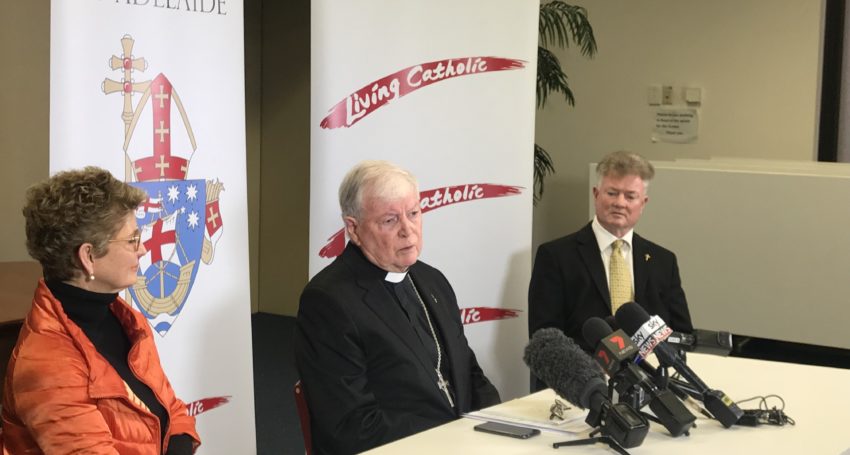
Recall that dramatic scene in the Gospel when numbers of the disciples begin to desert Jesus. He had been telling them about His gift of the Eucharist, that His flesh was real food and His blood was real drink, and many were repulsed. They said: ‘This is a hard saying, and who can bear it?’ Being human, Jesus must have been somewhat devastated to see so many turn their back on Him. He turned to Peter and said, ‘and you, will you also go away?’ to which Peter replied, with a saying that goes straight to our heart, ‘Lord to whom should we go? You have the words of everlasting life’.
Advertisement
It is not the same degree of significance, but numbers of our present disciples of Jesus may feel like walking away from the Church, granted all the issues that have arisen with survivors of abuse, the Royal Commission and most recently the shocking Pennsylvania grand jury findings. Most of us know of some persons who now describe themselves as former Catholics, people who have ‘got over the Church’, or have been disillusioned to the point of non-involvement. So why stay with the Church?
In answering this some people describe all the good works the Church is still doing, in its schools, homes for the aged, leprosaria, St Vincent de Paul, refugee support and so on. All that is true, but it is the ‘outside’ of the Church, the external expression of its inner meaning. Despite the scandals, the inner meaning and the attractiveness of the Church remains constant. There are a number of attributes that constitute the Church, attributes that are not found in such a cluster in other communities, attributes which give meaning and sustenance to our lives of faith.
Advertisement
Firstly, the Church remains the home of the Word. The New Testament evolved out of the early Christian communities, under the influence of the Holy Spirit. The Church formed the Scriptures and Scripture now forms the Church. But only the Church is in a unique position to interpret them, being their community of origin. Where would we be without the Word of God, without the Word spoken in and by Jesus?
Secondly, the Church is the home of the saints. That does not mean the saints are not to be found outside the Church in other denominations, but our history shows that even in times of the deepest scandals there were holy people raised up by God in the community of the Church. In all the seediness and corruption of the Church in the 16th century, there arose people like Teresa of Avila, John of the Cross, Ignatius of Loyola, Charles Borromeo, Francis de Sales, Philip Neri, Alphonsus Liguori, Thomas More and all the English martyrs, Margaret Pole, Francis Xavier, Margaret Clitherow and several other St Margarets. There are many others. In Australia we had Mary MacKillop, growing in holiness despite condemnation and excommunication by bishop and clergy. If anyone had grounds to resent the Church and say she was ‘over it’, it was Mary MacKillop. The community of the Church continues to be the nurturer of holy ones.
Thirdly, the Church as nurturer of the frail. Since the days of early Christianity, with the newly ordained deacons in the Acts of the Apostles going out to serve the poor and the widows (women without means of support), the Church has always been engaged in the works of mercy, in the service of the poor. Hospitals, leprosaria, the rescuing of slaves, the care of prisoners, the hospitals tending to the wounded and sick, the education of children, the care for the elderly. From the beginning the Church has tried to live the spirit of what Jesus says in Matthew 25, that I was hungry and you gave me to eat, in prison and you visited me, thirsty and you gave me to drink. There is a faithfulness that is so obvious, love being shown in deeds rather than words, and as a consistent indication of an attempt to live the Gospel sincerely.
Lastly, the Church as the giver of the bread of life. The Eucharist is the source and summit of the Church, the gift beyond all measure that Jesus bestows upon us. We need the bread of life if we are to follow His Word, and deepen our lives of love and faith.
So let us rejoice in the gifts God gives us in the community of the Church, and work towards removing all that betrays its mission.


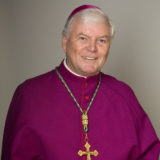
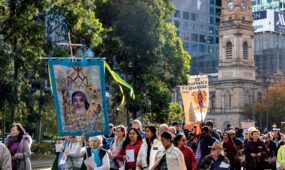
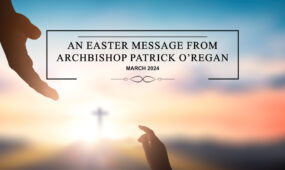

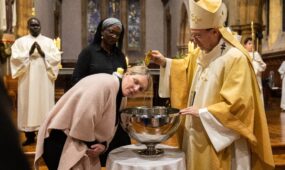

Comments
Show comments Hide comments